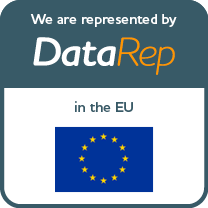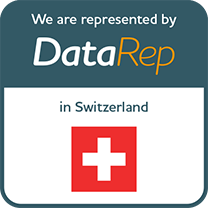We were excited to host another Forging Perspectives earlier this month to tackle the thorny topic of what impact AI is really going to have on marketing. We engaged a fantastic panel of industry experts, lined up our own Joe Catling to chair the proceedings, and welcomed around 50 guests to what turned out to be an entertaining and thought-provoking evening.
Joe set the scene for the event, saying that AI and the launch of ChatGPT has dominated the conversation for some time now. We’ve all seen the hype that everything has changed forever; either our jobs are all doomed or, at the other extreme, AI will help us to flourish so we never actually have to work again. He was clear that the goal of the evening was to is to move away from the hype and these extreme and unrealistic points of view to look at how AI will actually change our jobs and our lives.

He then introduced our expert panel, chosen to stay away from the extremes and bring a realistic and nuanced perspective to the discussion. We set up the conversation as a friendly debate, with different panellists taking up different positions to help us explore a variety of points of view.
The first speaker was Timandra Harkness, who describes herself as a presenter, writer and lapsed comedian whose “natural habitat is amongst dissenting adults in public”. Timandra presents BBC Radio 4 documentaries including Steelmanning, writes for many print and online publications, including BBC Science Focus and Unherd and is the author of Big Data: Does Size Matter?
Timandra’s presentation took us on a tour through the history of AI from Alan Turing and Bletchley Park through neural networks, machine learning and NLP to today’s LLMs. She started by asking us to consider what we mean by intelligence and whether we could even define it.
She went on to talk about how difficult it is to conceive of things that are outside of our experience; she told a story about Alan Turing who was sufficiently visionary to imagine a robot that would learn like a child but who, in imagining that you might teach it to go outside and fill the coal scuttle, was clearly unable to conceive of central heating
“And turns out it’s quite hard to produce something that thinks like a human because we do all sorts of clever things we’re not even aware we do… but the idea that a computer program could take meaning from language… large language models can do that … you can give it a prompt ‘write me a sonnet about the high speed train cancellation in the style of Shakespeare’. And it’s got enough information that it can produce something plausible… but are we any closer to what’s called artificial general intelligence? Well no.”
Timanda Harkness

Joe then introduced John Wakefield, CTO of Discover AI, an AI powered cultural insights agency. Joe asked John to explain a bit about why he is optimistic about the future and share some personal feelings about seeing something he’s worked on for many years become the ‘in’ thing.
“The reason I am optimistic about where we are now, and the future is that AI works. Yes, there’s hype but being realistic and understanding what the limitations are, how it works and how it can be applied can take you a very long way.”
John Wakefield
Our final panel member, representing a less optimistic viewpoint, was Emmanuel Maggiori, who is an AI industry insider, expert on machine learning and author of Smart till it’s dumb: why artificial intelligence keeps making epic mistakes (and why the AI bubble will burst)
Joe asked Emmanuel “You say in your book that, for all the opportunities that AI creates, there remain severe limitations to what it can do and will be able to do in the future. Can you explain why you think this?”
Emmanuel said that there are two caveats that he applies when thinking about the utility of AI. The first is the phenomenon of hallucinations meaning that AI makes mistakes, and we haven’t yet figured out how to fix them. This means that it is important to only use AI in environments and contexts where mistakes are acceptable.
“If you if you want to use AI for brainstorming or to translate a website, when it’s not really that important that that translation is perfect, then it’s great. But in some cases, hallucination can ruin your project. Take self-driving cars. The whole industry has tanked… AI just didn’t work.”
Emmanuel Maggiori
The other caveat is the different between good work and excellent work. Emmanuel’s view is that AI can do good work for you – but not excellent work – and you need to understand whether in your environment or context, good work is sufficient.
“A lot of people say AI will replace copywriters; they’ve never met a copywriter and they don’t know what the job entails. Sometimes it’s harder than they think.”
Emmanuel Maggiori

John’s view is that it is still early days for generative AI; we need to train it and work with it to get the best out of it. He also pointed out that that “ChatGPT is AI but AI is not ChatGPT”, meaning that there are many other forms of AI already in use – many of them behind the scenes in, for example, your phone, your car and your TV – doing incredible work that we have already started to take for granted.
The debate circled back to Timandra’s question about intelligence – does it really matter if AI is really intelligent if it can do the job you need it to do? And does it need intelligence to be truly creative rather than just mashing up existing ideas? Emmanuel feels that there is something still missing with AI that is a barrier to true creativity – and John feels that the technology is improving all the time so that barrier will, at some point, be breached.
This led Joe to move the discussion on to the future. He asked the panel whether we are at the dawn of a new era akin to the Industrial or the Digital Revolution, which unlocked waves of innovation and led to profound shifts to our lives. Or if generative AI is more like the invention of the car, with rapid initial change slowing to incremental improvement and eventually plateauing.
John leans towards ‘new era’ thinking. He cited Swedish philosopher Nick Bostrom, who has come round from his initial position that AI will destroy humanity to something more measured that sees the potential benefits in AI; John’s point is that we are a long way from a plateau – and may never reach one. Emmanuel revisited his view that there is something missing and said that he believes this elusive ‘missing component’ is what we need to make AI revolutionary and, yes, it is improving but we can’t predict when that will happen.

Timandra asked us to consider both the economic and the social demands that drive innovation and the fact that they need to align with technological possibility for something to take off. For example, there are both social and economic demands for self-driving cars, but the technology is not there. In contrast, sometimes the technology is there but the demand isn’t, such as videoconferencing before the pandemic.
Joe asked the panel what will change our day jobs in the next few years. John said that we will get out of it what we put in; you need to invest in data and fine tune it to your domain – you can’t just rely on a good prompt without feeding the right information.
Broadening the discussion beyond marketing, Joe asked about some of the bigger changes that we might see in the wider world. Timandra took the opportune moment to plug her forthcoming book on hyper personalisation saying that this is something that AI is very good at, and that culturally we seem to want.
“It’s a huge cultural trend that as our lives get more individualized and we get, frankly, more psychologically needy about being reassured who we are, that we exist, and that we are recognized by the universe as the unique person that we are.”
Timandra Harkness
At this point in the discussion, John flipped sides to talk about the dangers of AI and the risks of the models – and all our data – being in the hands of a very few, very rich, tech companies. Emmanuel also took a different position, talking about some of the potential positives, in particular AI helping us to find better, less marketing-driven content than Google.
Joe then invited questions from the audience. One guest asked what The Forge are doing with AI, which allowed Joe to talk about the very early days of an ambitious partnership venture to create an AI-powered consultancy which, if successful, might even eventually put The Forge out of business.
Another question revisited the idea of hallucinations and the concern that, being trained on historical data, AI won’t pick up when things change; in response John talked again about the importance of training AI on your own data.
Joe closed the event by asking the panel to nominate the best contributions that AI is currently making to society. John spoke about mental health and the idea that AI can provide ‘human’ contact and conversations for lonely people; Timandra talked about pattern finding in medical applications, such as diagnosis of specific diseases and how it is already outperforming human experts; and Emmanuel talked about helping people become more articulate and able to communicate, and the potential for bringing people from across the world closer together.

Our top five take-outs from the night.
- Don’t believe the hype – nobody really knows exactly how transformative AI will end up being. The reality at the moment is that it is great for some things, not so good for others, but it is changing and improving all the time.
- AI is not new and is already functioning effectively in many applications, many of which we aren’t really aware of. The hype is due to ChatGPT – but AI is so much more than that.
- Like all other tools, you need to understand what AI is good for and what it isn’t – which may come down to understanding where there is tolerance for the sort of mistakes that it currently makes.
- You get out what you put in. If you just use the same tools as everyone else, trained on the same data, you will get the same outputs.
- Keep an open mind; AI capabilities are changing very fast and there is no benefit in taking an entrenched position – as modelled by our experts who helped us to have that rare and beautiful thing: a thoughtful and nuanced discussion.


